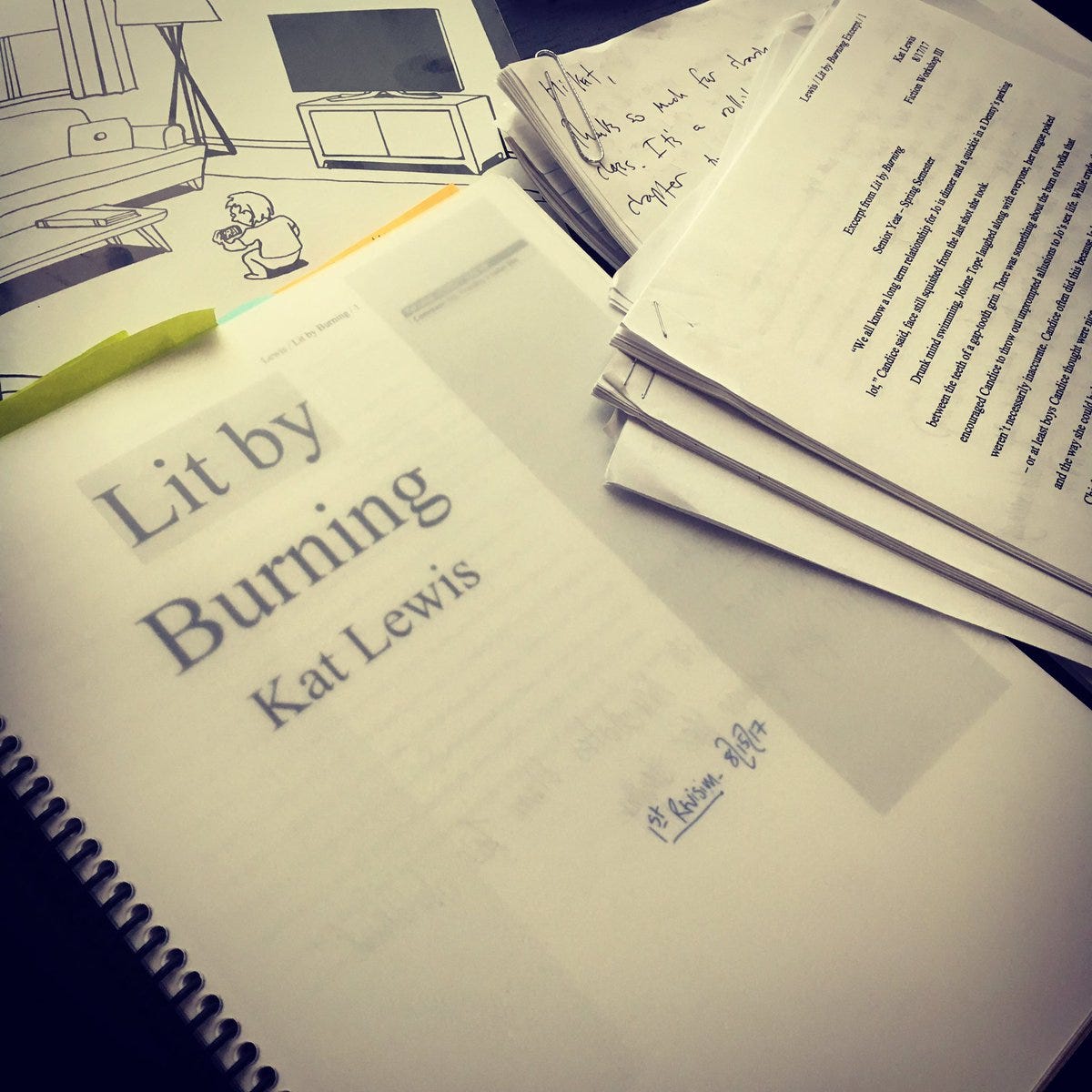Staying in Love with Your Writing
How to Use the Wind Down Routine
Lately, I’ve been working my way through the writing exercises in Alan Watt’s The 90-Day Novel1. At the beginning of the book, Watt states that characters do not have problems; they have unsolvable dilemmas. Since the dilemmas cannot be resolved, the character must transform through a shift in their perception in order to survive the story.
For me as a writer, my dilemma is that my novel may never see the light of day. When Lit by Burning died on sub earlier this year, I had completely succumbed to this dilemma. On the verge of quitting writing altogether, I realized my goal of being a traditionally published novelist is an unsolvable dilemma. I am a Black woman writing about the Black experience in South Korea, hoping to publish in a very white industry. The odds are inherently against my work. But this past summer, I realized that a shift in perception could save my writing life.
When I was working on Lit by Burning, I was writing with one goal in mind: publish a novel to qualify for tenure-track jobs in the US. For six long years, this goal drove every decision I made in both my professional and personal life. As a result, when Lit died on sub, I was devastated. My life as a writer was over, my dreams of becoming a college professor shattered.

But now, I’ve reframed my perception, and I write for the sake of writing. This way, even if I fail at traditional publishing, I still succeeded at what I set out to do. This shift in perception was a necessary transformation for my writing life to survive. It’s easy to say, “Change your outlook and your mental health will be great,” but what does that look like in practice? For me, it all comes down to the writing wind down routine I do at the end of each session.
When I was an MFA student at the University of South Florida, my pedagogy professor, Dr. Heather Sellers, taught our class a great way to do midterm course evaluations. She had us give our students an anonymous survey in which they write the following:
Three things that are going well in the course
Two concerns about the course
One question about the course
For writing, I’ve modified these prompts to a process-focused exercise I do at the end of every writing session. Here’s the template I use:
Three things that are working well in the draft
Two concerns I have about the draft
One question I will answer in my next writing session
As a rule, I always keep my answers concrete and craft-focused. “I’m worried that my character’s goals are too abstract” is a concrete, solvable concern whereas “I’m worried that I’m not a ‘good’ writer” is not. Along with that, I also make myself answer each bullet point in a single sentence. This constraint prevents the exercise from eating into my writing time.
Overall, this wind down routine does two important things to help me combat my dilemma. First, by acknowledging my strengths and concerns, I’m able to leave my anxiety at the desk. This way I’m not constantly worrying about my book when I’m watching TV or hanging out with my friends. This exercise also encourages me to be curious about the writing process. If I’m curious about the process, I’m more invested in the writing itself rather than the final product. Thanks to this routine, I’m generally less anxious about the possibility of my current WIP dying on sub, and I’ve found a lot more joy when I sit down to write.
Before I go into my process update for this month, here’s my book’s pitch for context:
You Will Survive This is a literary novel that blends romance and speculative fiction to tell the story of a Black woman who falls in love with a 1,000-year-old man. Izzy Hayes is a folklore anthropologist conducting research in Seoul. When she meets Kim Taejong—a strange man cursed with immortality—she agrees to help him discover what folklore creature he is so that he can use its weakness to finally find peace. Alternating between the perspectives of Izzy, Taejong, and Blanche—a survivor of Taejong’s former cult—the story complicates as Taejong wants to find peace in a permanent death immediately, Izzy wants him to stay alive for the remainder of her lifetime, and Blanche wants to kill Taejong to take his immortality for herself.
Here’s my process update for this month:
Three Things Working Well
I renamed the book from Cheonjimun to You Will Survive This.
The research I recently did at the National Museum of Korea is paying off in the story.
Izzy’s desires, fears, and misbeliefs in the beginning of Act II are now clear and concrete.
Two Concerns
I’m worried about Blanche’s first POV chapter finding its pacing.
Since Blanche is introduced as a POV character at the turn into Act II, I’m also concerned that her chapter slows the novel’s overall momentum.
One Question to Answer
What is Blanche’s core wound, and how does her first POV chapter establish it?
Tell me about your own writing process. What are three things that are going well? What are two concerns you have? What’s one question you’ll answer in your next writing session? I want to hear all about your work in the comments.
Next week is my favorite craft lesson to teach. We’ll be diving into how to use our character’s internal and external goals as the driving force in our stories.
Until next week,
Kat
This post includes affiliate links. I may receive a commission if you make a purchase through these links. Purchasing books through the Craft with Kat Bookshop supports the free writing resources I share here on Substack.



So motivating! It’s working.